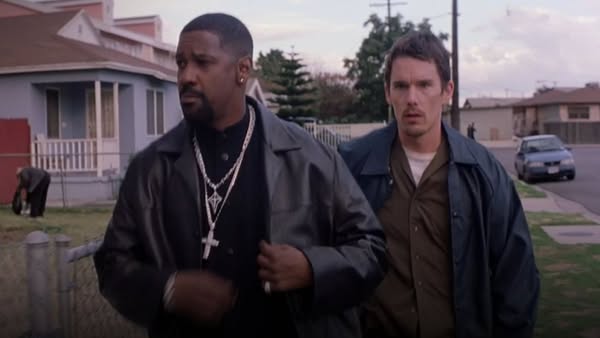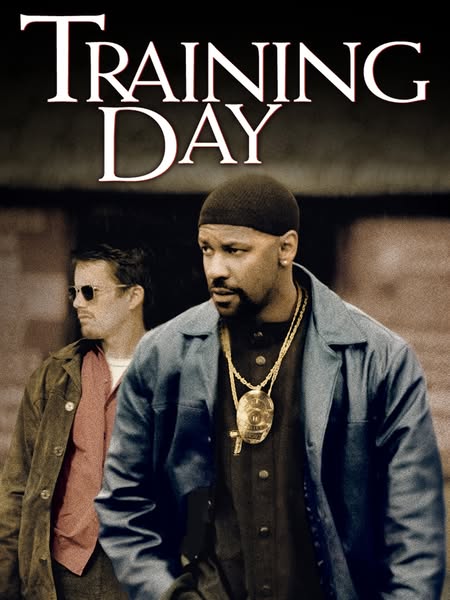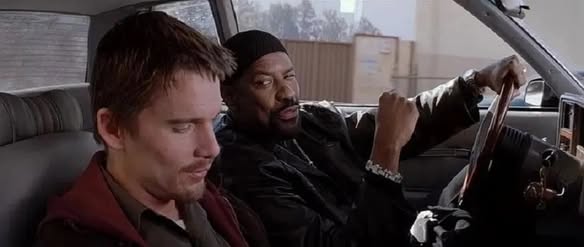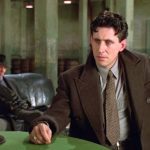Training Day (2001)

Training Day (2001) is a gripping crime thriller that delves into the complexities of morality and the blurred lines between good and evil within law enforcement. The film is set against the backdrop of Los Angeles, following a single day in the life of rookie cop Jake Hoyt, played by Ethan Hawke, as he embarks on a ride-along with the seasoned and morally ambiguous detective Alonzo Harris, portrayed by Denzel Washington. The narrative unfolds over a tense 24-hour period, showcasing the stark realities of street policing and the ethical dilemmas faced by those who wear the badge.
The film opens with Jake, an idealistic officer eager to prove himself, being assigned to Alonzo, whose unorthodox methods and ruthless demeanor quickly challenge Jake’s principles. As the day progresses, Alonzo introduces Jake to a world rife with corruption, deception, and the darker side of police work. Their dynamic serves as a crucible for Jake’s character development, forcing him to confront his own values and the extent to which he is willing to go to succeed in a morally compromised environment. The tension escalates as Alonzo’s true nature is revealed, leading to a gripping climax that leaves viewers questioning the very nature of justice.

Training Day excels not only in its compelling storyline but also in its powerful performances. Denzel Washington’s portrayal of Alonzo earned him an Academy Award for Best Actor, showcasing his ability to inhabit a complex character who is both charismatic and terrifying. Ethan Hawke delivers a strong performance as Jake, effectively capturing the character’s internal struggle and moral conflict. The chemistry between the two actors is palpable, with their interactions driving the film’s emotional depth and intensity.

The direction by Antoine Fuqua is marked by a gritty realism that immerses the audience in the chaotic world of Los Angeles law enforcement. The cinematography captures the city’s stark contrasts, from its vibrant nightlife to its darker underbelly, enhancing the film’s atmosphere. The use of handheld cameras and close-ups adds to the immediacy of the action, making viewers feel as though they are experiencing the events alongside the characters.

The film’s exploration of themes such as corruption, power, and the ethical quandaries faced by those in positions of authority resonates deeply. It raises questions about the nature of heroism and the sacrifices made in the name of justice, leaving audiences to grapple with the moral ambiguities presented throughout the narrative. The dialogue is sharp and impactful, with memorable lines that have become iconic, further solidifying the film’s place in cinematic history.
Overall, Training Day stands out as a landmark film in the crime thriller genre, combining a riveting plot with exceptional performances and thought-provoking themes. It challenges viewers to reflect on their own perceptions of morality and justice while delivering a captivating cinematic experience. The film’s legacy continues to influence discussions about law enforcement and the ethical dilemmas faced by those who serve and protect, making it a relevant and powerful piece of storytelling that endures long after the credits roll. Whether viewed as a cautionary tale or a gripping character study, Training Day remains a quintessential example of modern cinema that captivates and provokes thought in equal measure.











